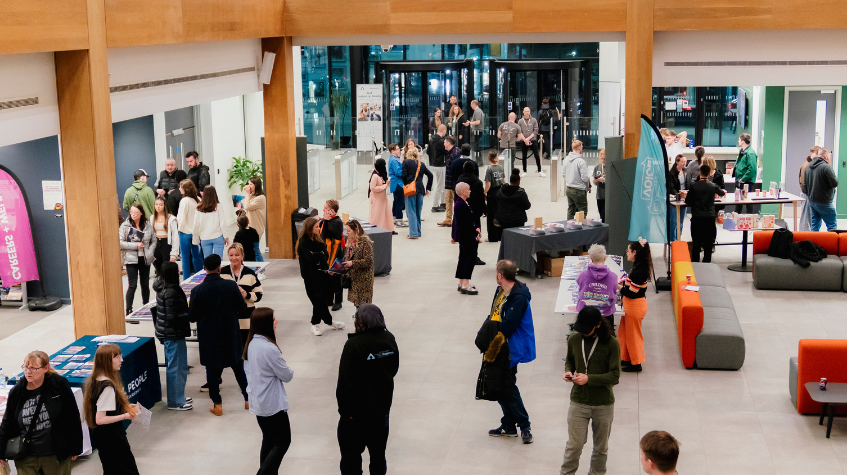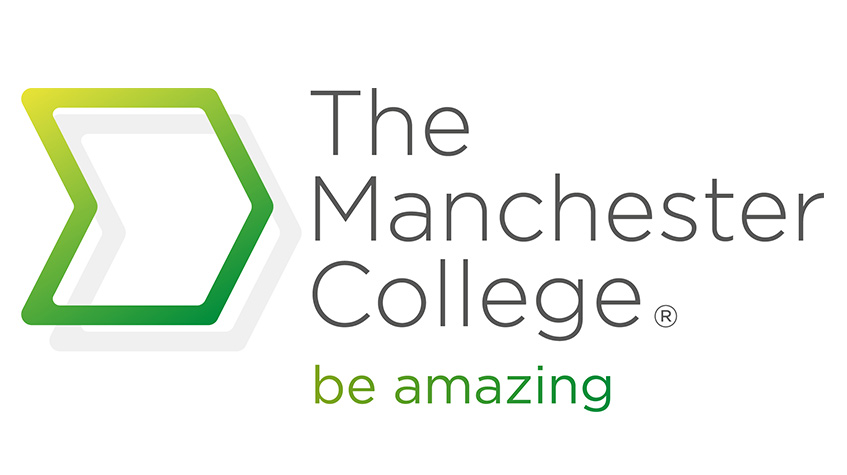
Mastering Face-to-Face Networking: 7 Tips to Boost Your Career
We live in a world of social media where we can connect with others with just one click of a mouse or a tap on our smartphones. Online networking is easier and therefore more comfortable to engage in. Although a business site like ‘LinkedIn’ is a perfectly good way to grow your professional network, networking online should not be a substitute for meaningful interaction with others in your chosen sector or industry.
Learning to network face-to-face has many benefits: it is good practice for job interviews, it helps you hone speaking and listening skills and it helps you make a lasting impression on someone who might help you up the career ladder.
Here at TMC, our college courses prepare you for networking in your industry. So, here are our top 7 tips on how to do it and get the most out of networking.
What is Face-To-Face Networking?
Face-to-face networking refers to in-person interactions that help you build and maintain professional relationships. These can happen at industry conferences, career fairs, meet-ups, alumni events, public lectures, or even informal gatherings like coffee chats.
Unlike virtual networking, which often lacks nuance, in-person networking allows for more dynamic and memorable connections through body language, tone of voice, and spontaneous conversation. In essence, face-to-face networking is about showing up, being present and having meaningful conversations that could lead to mutual professional growth.
What are the Benefits of Networking?
- Improved communication skills: the more you network in person, the better you become at clearly and confidently expressing yourself
- Increased confidence: stepping out of your comfort zone to approach new people builds resilience and self-assurance
- Access to hidden opportunities and salary increases: many job openings or projects are shared informally, through conversations, before they are ever posted online. This can also help with career planning.
- Mentorship and guidance: you may meet someone who becomes a mentor or offers insights that shape your career path
- Stronger memory recall: people are more likely to remember you from a face-to-face interaction than a name on a digital contact list.
Tips for Face-To-Face Networking
Tip #1: Attend Events on Your Own
It can be tempting to go to a jobs fair or networking event with friends, but this can inhibit you and stop you from talking to employers directly. If you are there on your own, make eye contact and smile, you will soon get into conversation with someone new; many events give out name badges so it’s easy to start a conversation by asking about the company the other person works for when you have seen the name on their sticker, for example.
Tip #2: Plan Your Networking
Just as you plan for an interview, find out beforehand who will be attending the event and decide on two or three people to target. It’s about quality, not quantity. When I go to a trade fair, I spend a moment looking through the programme before I go in. I make an asterisk against the name of the companies/people I want to speak to and I go to them first. Have a notepad with you as your conversation partner might recommend something, like a website, that you might want to write down.
Tip #3: Follow Up
Email the people you have met and thank them for their time. Think about another way to keep in contact; you could enquire about visiting their company or doing work experience there, or link up via social media and follow their company on LinkedIn, for example.
Networking is a good skill to master and having strong links to professional, like-minded people will stand you in good stead at all stages of your career. A personal recommendation can sometimes be the deciding factor when a company is looking at similar job candidates for a role. Adopt a ‘quality not quantity’ approach and make sure you thank people for any help they give you along the way.
Tip #4: Prepare Your Elevator Pitch
Before you attend any event, prepare a short, confident summary about who you are, what you’re studying or working on and what your career goals are. This "elevator pitch" should last around 30 seconds and help others quickly understand what you're about. Keep it clear and conversational - no need to sound robotic or overly rehearsed. It’s not about selling yourself; it’s about starting a meaningful exchange.
Tip #5: Be Genuinely Curious
Networking isn't just about promoting yourself - it's about learning from others. Ask questions, listen actively and show a sincere interest in what the other person does. People appreciate being heard and are more likely to remember someone who made them feel valued.
Use open-ended questions like:
● "What brought you to this event?"
● "What’s the most exciting project you're working on?"
● "How did you get started in your field?"
This can lead to richer conversations and often uncovers common ground or unexpected opportunities.
Tip #6: Use Body Language to Your Advantage
Your posture, eye contact and handshake all send messages before you even start talking. Stand tall, make comfortable eye contact and smile genuinely. Avoid crossing your arms or fidgeting, as it can come off as disinterest or nervousness. Being aware of your body language can help you project confidence, even if you're feeling a bit nervous on the inside.
Tip #7: Join Local Networking Groups
Sometimes the best networking happens outside of formal events. Look for local professional associations, business breakfasts, or community meetups that align with your career interests.
These groups often meet regularly, giving you a chance to build ongoing relationships rather than one-off connections. Volunteering for these organisations can also give you visibility and leadership experience.
Choose TMC for Expert Networking Tips
Networking is a good skill to master, and having strong links to professional, like-minded people will stand you in good stead at all stages of your career. A personal recommendation can sometimes be the deciding factor when a company is choosing between similar job candidates.
The key is to adopt a "quality over quantity" mindset. Meaningful relationships are built over time and often start with a single, authentic conversation. Keep practicing, stay curious, and don’t forget to thank those who help you along the way.
At TMC, our tutors are experienced professionals with deep knowledge of their industries. They’re here to offer valuable guidance on networking and career development. You'll also have plenty of opportunities for face-to-face networking through regular guest speakers, industry events, and placement opportunities with leading employers.
